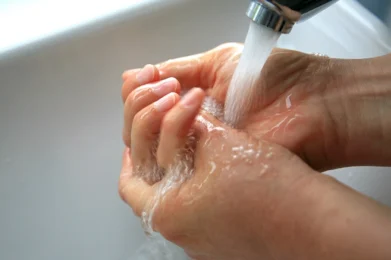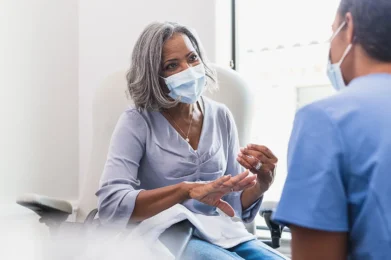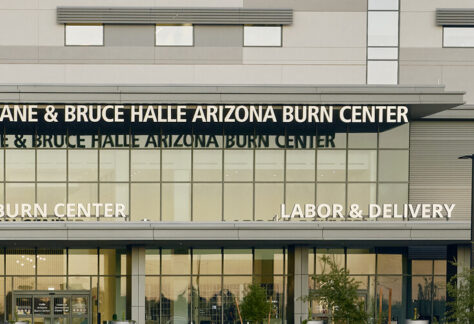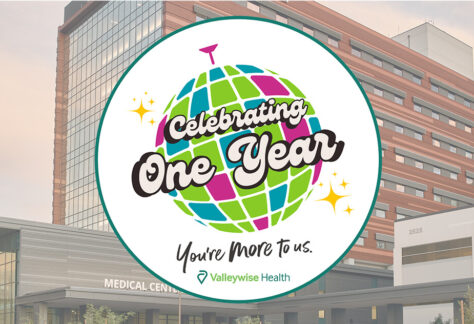In This Article:
- Whether you’re well into your sixties or settling into your seventies, it’s important to take safety precautions when managing your medications. Taking the wrong medication or missing a dose could have fatal consequences on your health.
- Instead of worrying about memorizing all the special instructions for each of your medications, stay organized by using a pill organizer, schedule, list or dose packages.
- Exercise caution with each of your prescriptions, especially if they are known to have addictive qualities. Consult with your doctor if you have any concerns about your medication management.
Medication management is not easy when you’re juggling multiple prescriptions. Has your doctor prescribed you medications with special instructions? Maybe some of your medications have to be stored at a certain temperature or taken at a specific time each day.
Whether you’re well into your sixties or settling into your seventies, it’s important to take safety precautions when managing your medications. Taking the wrong medication or missing a dose could have fatal consequences on your health.
It can be overwhelming to keep track of all your prescriptions, when to take them and for how long. Instead of worrying about memorizing all the special instructions for each medication, try out some of the medication management tips outlined below.
Advice for Elderly Medication Management
Use a Pill Organizer
A pill organizer comes in handy because it will store your medicines based on your A.M., P.M., weekly or monthly schedule. One strategy to make the best use of a pill organizer is to schedule a weekly or monthly recurring date on your calendar to fill your pill organizer. Once your pill organizer is full, all you have to worry about is taking your medication, not when or how much.
If you tend to forget to take your medications, there are modern pill organizers available that come with alarm reminders. Some pill organizers will even send a text to your phone.
Write a Schedule
Keeping a consistent medication management schedule is essential for your health. Stay on track with your medications by writing out a daily or weekly schedule. Make sure to update your schedule whenever your doctor adds or discontinues a medication from your health plan.
For easy access, store a digital version of your schedule in your phone or email. Make sure your schedule includes all your medications, including vitamins and herbal supplements.
Create a Master List
Managing medications for multiple prescriptions is complicated. It can get even more complicated if you’re sharing a medicine cabinet with additional people in your home. Stay organized by making a list of all the medications you’re currently taking and store them in a safe place.
Not only is a master list helpful for medication management, but it’s also a good resource for caregivers and medical professionals who may treat you if you visit urgent care or the emergency room.
Safety Concerns
Medications save lives, but they also come with great responsibility. Doctors are conscious of your medical health and allergies when they introduce new prescriptions into your health plan. This is why it’s vital to communicate any issues you’re having with your prescriptions — are they making you nauseous, fatigued or drowsy? Write down any concerns you have and share the list with your doctor.
In addition, look out for any behaviors you’re noticing in yourself. Are you concerned about accidental addiction to one of your prescriptions? Do not self-diagnose or make any changes to your prescription without speaking to your pharmacist or doctor. Accidental addiction and overdosing are real concerns that you should be wary of, but it’s also important you benefit from the health and lifestyle impacts of your medications
For example, a patient with chronic pain issues may be prescribed opioids to alleviate their pain. Opioids can be very effective at alleviating pain in the short term, but they are also known to have addictive qualities when they are taken for long periods of time. If you are concerned about the addictive qualities of a particular medication, reach out to your doctor or pharmacist.
Additional Tips for Medication Management
Along with creating a strategy for staying organized with a schedule, list, pill organizer or dose packaging, here are several additional safety tips to help you manage your medications safely.
- Don’t take more or less medicine than your doctor prescribes.
- Schedule your prescription refills on time to avoid missing a dose.
- Don’t take a medication prescribed for someone else.
- Check expiration dates and properly dispose of outdated prescriptions.
- Store your medicines in a safe place.
If you want to have access to your doctor and pharmacy all in one place, visit a Valleywise Health Community Health Center, where you can get primary care and prescription refills on the same visit. Call 1-833-VLLYWSE to book an in-person or virtual appointment today.






